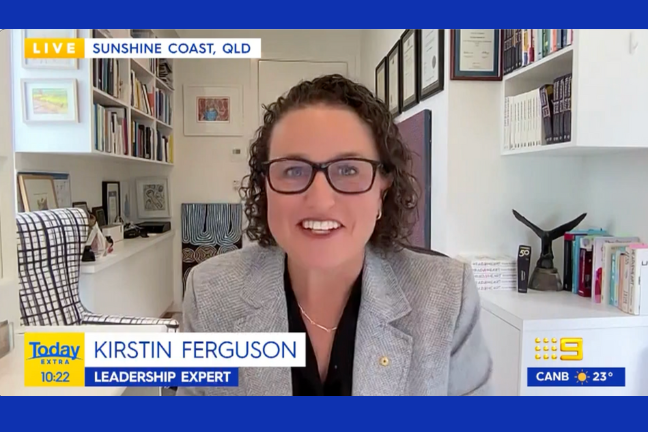
Complete the Head & Heart Leader Scale™ and receive a free, personalised report here.
Complete the Head & Heart Leader Scale™ and receive a free, personalised report here.
Kirstin Ferguson
February 25, 2021
For every courageous Brittany Higgins speaking out bravely on what has happened to her, there are millions of Australian women who suffer anonymously in silence.
Each week I answer reader questions on careers and work in the Got A Minute? column in the Herald and The Age. The questions are as varied as they are interesting, generally challenging and often fun to answer. Yet one question stood out for me this week because I had no answer at all.
Jane (*not her real name) wrote to tell me that she had been sexually harassed and bullied out of her profession some years ago. Jane has not worked steadily since and now lives in poverty as a single parent. She reported that she gets by on JobKeeper and the odd contract to pay the bills.
The culture for women in Parliament House and the stories of women having to leave their dream careers has reminded Jane, once again, of what happened to her. Jane told me how even now, many years later, well-meaning people are sympathetic to what happened, yet no one is there to help her get back to where she should have been, financially and otherwise, now her job and career is gone.
Jane’s question to me was “What do I do? How do I give up on a career dream or reconcile the trauma of losing my career and so many productive years?“
How do any of us answer that question for Jane, for Brittany or for any other woman?
My advice is therefore not to Jane at all, but to the federal government. I am angry and frustrated for women whose career dreams are brought to an end and whose financial security is left in tatters.
Just over one year ago, almost to the day, Australia’s Sex Discrimination Commissioner, Kate Jenkins, launched a world-first report – Respect@Work: National Enquiry into Sexual Harassment in Australian Workplaces.
In the shadow of #MeToo, the report was a high watermark for genuinely seeking to understand and address the long history of sexual harassment in Australian workplaces.
The report found that just like Jane, over a period of five years, two in five Australian working women (or 39 per cent) had experienced sexual harassment as well as one in four Australian working men (or 26 per cent). That is 2 million Australian women who have been sexually harassed over five years.
The Respect@Work report made 55 recommendations, each of which would go a long way towards addressing the systemic and cultural issues of sexual harassment in our workplaces as well as helping support women like Jane.
The government have acted on only four recommendations so far.
In short, Australian workplaces need much more work to be done by the government if the impact of sexual harassment on women’s careers is ever to shift for women like Jane.
There is no doubt federal Parliament is facing its own reckoning as Brittany Higgins, Chelsey Potter and a further two women, courageously shine a light on the treatment of some women in the corridors of power. We can only hope these four women each find the justice they deserve.
The federal government has now approached Kate Jenkins for advice on conducting an independent review into the culture of Parliament House. This is a good start and will no doubt be invaluable in supporting the women working there today.
But let’s also hope the government seizes the moment to also finally address the work that Jenkins has already completed through the Respect@Work report, which will help women across Australia just like Jane find justice as well.
Dr Kirstin Ferguson is a company director, executive coach and she writes the Got A Minute? column in the Herald and The Age every Wednesday. You can submit questions to Kirstin using contact@kirstinferguson.com




